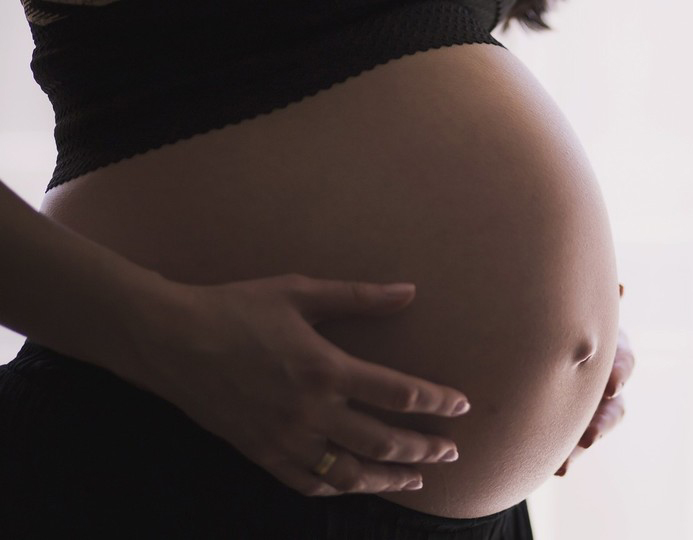Pro-Life cause deserves better than Texas Law

The Supreme Court’s fateful step of judicializing abortion in 1973 effectively removed it from the political process for nearly a half-century. Americans’ passionate feelings on the matter were displaced from legislative disputes (where they belonged) to the composition of the Supreme Court, resulting in crude, openly political, circuslike nomination battles that have characterized nearly all recent appointments.
But now the Court seems poised to toss the question back into the political realm. I say this not so much because of what happened with the Texas law but because the Court is scheduled to hear arguments in Dobbs v. Jackson Women’s Health Organization, a Mississippi case aimed squarely at Roe v. Wade.
The Texas Heartbeat Act currently causing such angst may be remembered as a sideshow. Bear in mind that in declining to issue an injunction, the Supreme Court did not endorse the substance of the law. It ruled only that the appellees lacked standing.
The drafters cleverly designed a scheme to evade an injunction, and they succeeded. But to what end?
In due course, someone will sue an abortion provider or a best friend who gave a pregnant woman the name of a clinic, and the defendants will respond by challenging the constitutionality of the law. At that stage, when there is a true case or controversy, the Texas Heartbeat Act will wend its way through the courts and wind up at the Supreme Court eventually. Evading injunctive relief is not the same as evading judicial review altogether. So, for a period of weeks or months, it will be nearly impossible to obtain a legal abortion in Texas.
To achieve a temporary halt on abortions, Gov. Greg Abbott and the Republicans in Texas’ legislature have demonstrated contempt for any value other than hamstringing review. Do the drafters and Republican lawmakers who adopted this law really want to invite the kind of spying and informing their law envisions? Do they really want bounty-hunters to enrich themselves on the backs of women in trouble? Do they really want to make Texas look like East Germany?
Mississippi’s law, by contrast, is a straight-up challenge to the “undue burden” standard enunciated in Planned Parenthood v. Casey. It would ban abortions after 15 weeks’ gestation except in cases of health emergencies and fetal abnormalities. There are no bounty hunters or nosy neighbors looking to settle a score or teach someone a lesson.
The Court has not yet upheld a state law limiting pre-viability abortions, but Dobbs may be the case that does so.
It would be far healthier for our society if citizens were asked to debate and decide these matters for themselves, in their own states, without the help of nine lawyers on the Supreme Court. These are exactly the sort of issues that free people must grapple with if they want to be considered self-governing. Nearly every poll on abortion has found that most Americans favor legal abortion in the first 12 weeks and oppose it (to varying degrees) thereafter. Polls asking whether Americans support Roe are useless because few know what it says.
If Americans are somewhere in the mushy middle, the two political parties have arrayed themselves at the extremes.
The past five years have demonstrated the dangers of excessive polarization. We are tearing each other apart over mask mandates, for God’s sake. How well equipped are we to debate and discuss an issue that is even more emotionally volatile? Nevertheless, if the Supreme Court overturns Roe and Casey, or limits their scope, the ball will be back in the citizens’ court.
I’m not optimistic that compromise or mutual understanding is possible on this issue, but let me offer some personal recollections that may help. My husband and I, as adoptive parents, were active in adoption charities and advocacy for many years. Adoption brings together people from both sides of the abortion divide. We met Hillary Clinton and Mary McGrory, a fierce liberal columnist who was on former President Richard Nixon’s enemies list, at adoption events, as well as former Republican Congressman and Majority Whip Tom DeLay. He and his wife had raised three foster children.
I was happy to help Erica Pelman launch In Shifra’s Arms, a Jewish charity dedicated to helping women who experience crisis pregnancies. ISA was clear from the outset that its goal was to help women, not to lobby about changing laws. There were pro-choice and pro-life women on the board, united in the desire to let women know that they were not alone.
An Guttmacher Institute survey on women’s reasons for having abortions noted that more than one-third of the women in the study had considered placing their children for adoption but rejected it because they believed it was “morally unconscionable” to give a child away. It seems highly doubtful that the 7 million Americans who are adopted would agree. An estimated 1 to 2 million couples are waiting to adopt children. In 2018, there were about 619,000 abortions.
Most people are shocked to learn that there’s even a registry for couples waiting to adopt babies with Down syndrome.
Adoption is a loving alternative to abortion. Perhaps we can begin to listen to and hear each other if we start there.
——
Mona Charen is policy editor of The Bulwark
and host of the “Beg to Differ” podcast.


